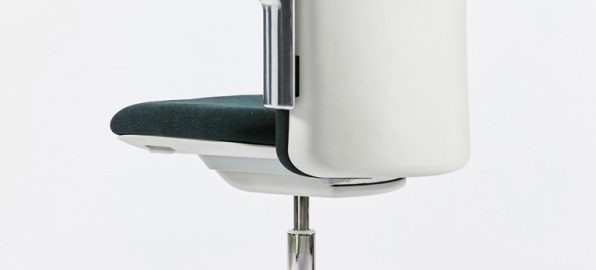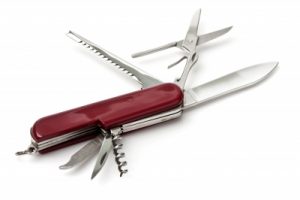April 19, 2022
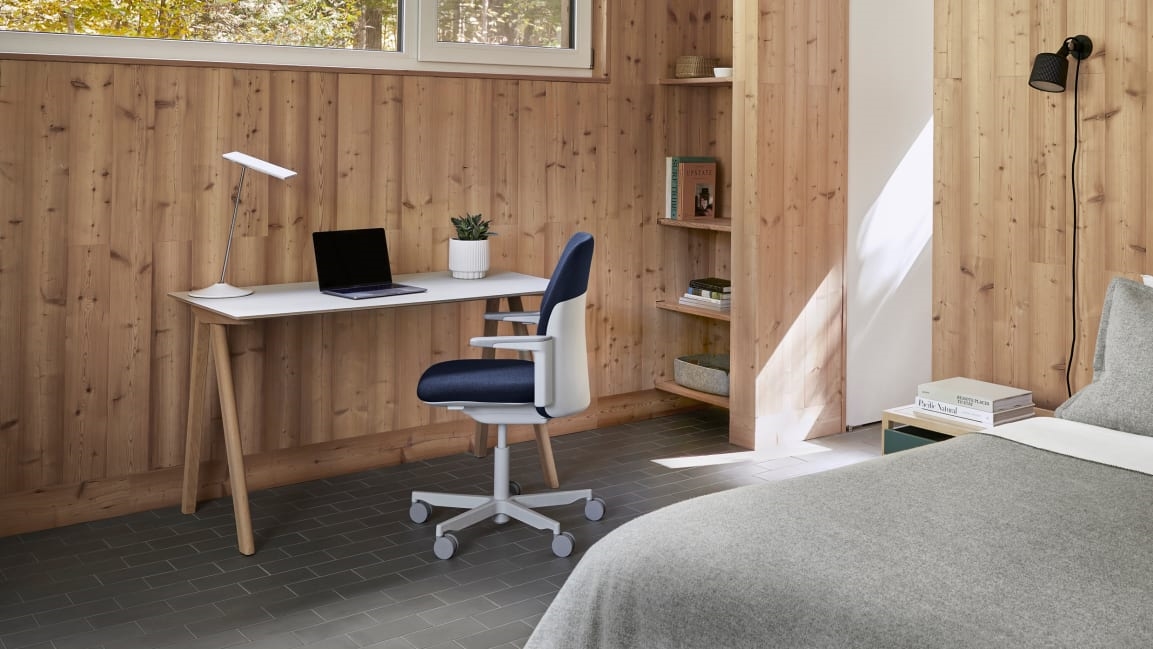
Last year, the furniture company MillerKnoll debuted an eco-friendly makeover of its iconic Aeron task chair, incorporating over two pounds of recycled ocean plastic inside. Today, the office furniture brand Humanscale raises the bar in a big way, as it reveals its new Path task chair.
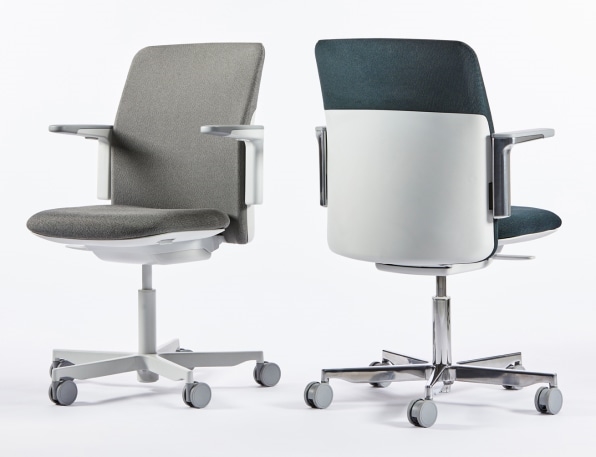
The $1,200 Path is meant to demonstrate a “new path forward” in greener design, according to press materials. Five years in development, it incorporates 22 pounds of recycled plastic. And nearly half that weight is specifically in ocean plastic; the chair uses 10 pounds of reclaimed fisherman nets in its structure, trapping waste inside the sharp design.
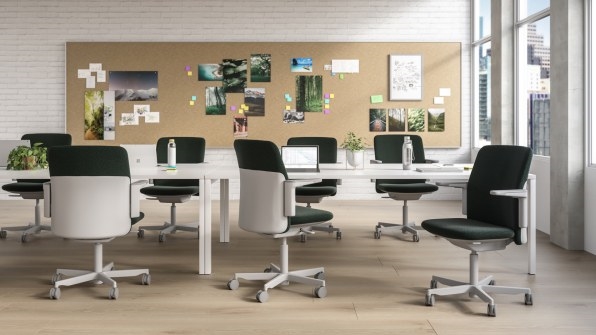
All of this material reuse helps the Path achieve a climate positive rating—but material is just one part of the larger production story. Manufactured in New Jersey, at a solar-powered plant that uses recycled rainwater, the chair’s company saves the carbon impact from shipping production components around the world. Each Path chair produced “removes 6 kg of CO2e from the atmosphere, replenishes 15 gallons of water, and generates 23 kWh of energy,” according to Humanscale.
“Our slogan is doing less harm isn’t good enough,” says CEO Bob King. “You have to start repairing some of the damage.”
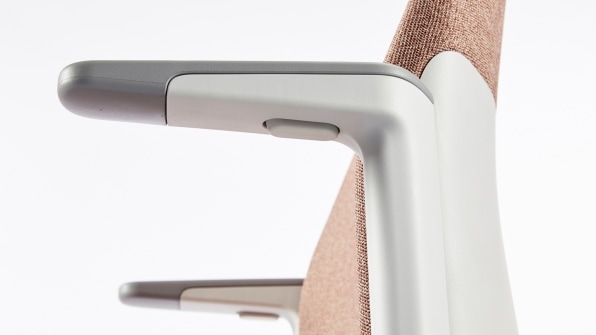
Today, 60% of Humanscale’s products are climate positive (by revenue) as the company aims to make the vast majority, or even all, of its line climate positive in the future. The Path chair serves as both a new benchmark and a case study in that journey.
Designed by Todd Bracher, the Path chair builds upon Humanscale’s existing Ocean line of chairs, each of which incorporated two pounds of ocean plastic. Bracher was able to push the limits further due largely to Humanscale’s investment in the pipeline of recycled ocean plastics in addition to some significant design innovations.
At first glance, the Path appears to be upholstered like a 1980s office chair. In fact, you’re looking at a zero-waste, 3D knitted “shower cap,” as Bracher jokingly calls it. The knitted cover squeezes 68 water bottles of material into its soft textile. Yet, unlike those office chairs of yore, this textile is knitted at tensions that vary by zone to support the parts of your body differently. This gives it a performance quality more like modern sneakers than a retro piece of office furniture.
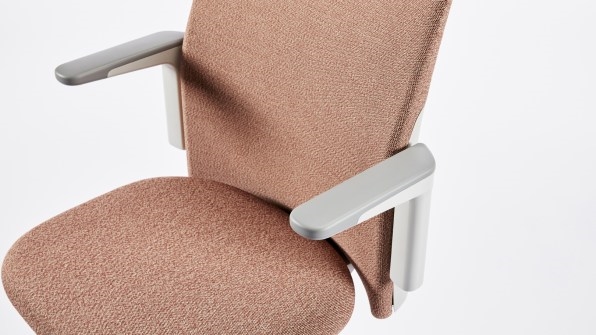
One major challenge to using any recycled material is that it may not be as strong as virgin materials—and this is definitely true about plastics recycled from fishing nets. “You can’t use 100% net in a part that the chair relies on for strength,” says King. “It’s a little tricky.”
Bracher had to juggle where to take advantage of the fishing-net plastic and where to use other recycled plastic in order to maximize the chair’s structural integrity. The distribution of plastics came down to aesthetics, too. Ultimately, Bracher used conventional recycled plastic for touch points, like the chair’s high back and arm rests. He then tucked the recycled ocean-net plastic inside the chair, where you wouldn’t see it. “You don’t see a lot of that material [because], typically, those materials don’t have a nice look to them,” says Bracher, who points out their dark, and sometimes uneven, finishes. “Chances are, if you don’t have to see it, that’s good.”
The base of the chair is made from unpolished aluminum, chosen because it’s easy to recycle. As for under the seat: Do you see any springs, handles, or adjustment knobs for tilting the chair back? No. Humanscale saved an estimated 15 pounds of material on the chair because of a unique design that balances your butt on something like a miniature teeter totter. As you lean back, the seat actually lifts just a few millimeters to use your own weight as a counterbalance. The result: 95% of the population can sit in a Humanscale chair, lean back as much as they like, and the chair will simply hold in place.

All of these elements add up to what Humanscale calls the “world’s most sustainable” task chair. It’s available in 32 colorways for $1,200, which is in the midrange of the task-chair continuum (Yves Behar’s popular Sayl chair retails for roughly half of that, whereas Vitra’s Apple-approved Pacific chair costs more than $3,000).
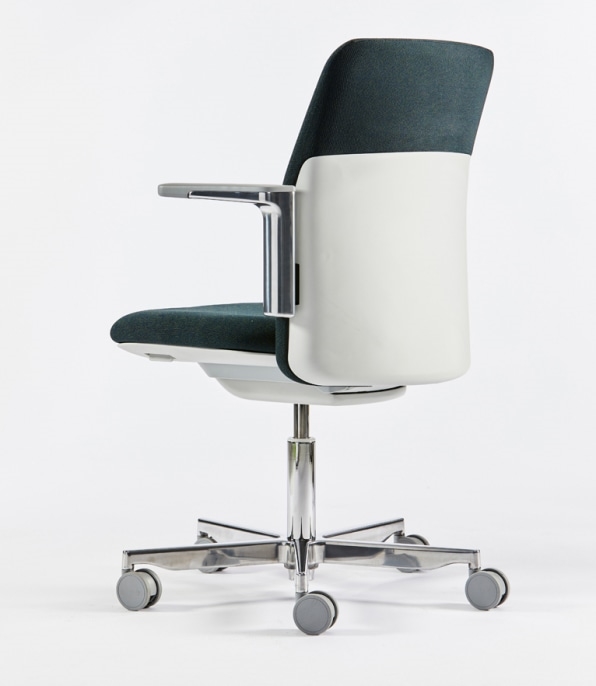
King anticipates that competitors will jump on the bandwagon. But he’s not worried. “We think it’s cool, it’s great,” he says. “Then instead of impacting 4% to 5% of the industry, we can have an impact on 100% of the industry. And selfishly, we get credit for doing it first—which is okay, too.”
(20)
Report Post